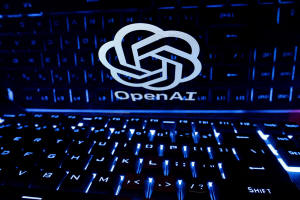|
"DALL-E 3 can translate nuanced requests into extremely detailed
and accurate images," the company said in a statement.
OpenAI said the latest version of the tool will have more
safeguards such as limiting its ability to generate violent,
adult, or hateful content.
The tool also has mitigations to decline requests that ask for
images of a public figure by name, or those that ask for images
in the style of a living artist.
OpenAI said creators could opt out of using some or all of their
work used to train future text-to-image tools.
OpenAI's race to create accurate text-to-image AI tools has
several competitors, including Alibaba's Tongyi Wanxiang,
Midjourney and Stability AI, who continue to refine their
image-generating models.
However, there are several concerns around AI-generated images.
A Washington D.C. court in August ruled that a work of art
created by AI without any human input could not be copyrighted
under U.S. law.
OpenAI also faces several lawsuits. A trade group for U.S.
authors recently sued the artificial intelligence leader on
behalf of writers including John Grisham and "Game of Thrones"
novelist George R.R. Martin accusing the company of unlawfully
training its chatbot ChatGPT on their work.
(Reporting by Chandni Shah in Bengaluru; Editing by Subhranshu
Sahu)
[© 2023 Thomson Reuters. All rights
reserved.] Copyright 2022 Reuters. All rights reserved. This material may not be published,
broadcast, rewritten or redistributed.
Thompson Reuters is solely responsible for this content.

|
|




